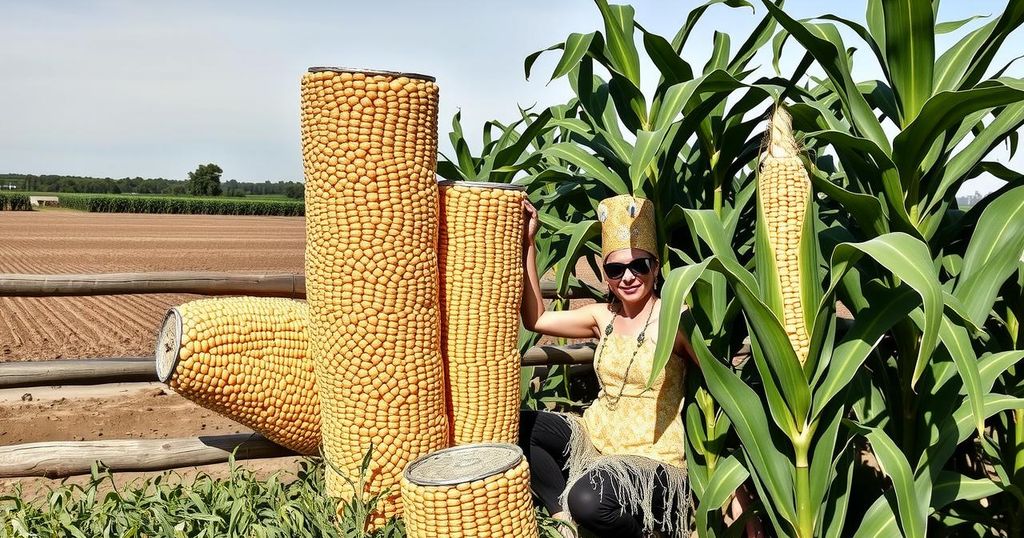Dry Weather in Argentina Drives Up Soybean and Corn Prices
Argentina’s ongoing dry weather has led to a rise in soybean and corn futures on the CBOT, with soybeans increasing by 1.29% and corn by 0.78%. This comes as Kazakhstan boosts its grain exports, while French farmers protest against competitive disadvantages born from restrictive policies. Weather disruptions are reshaping commodity markets and raising concerns about crop yields internationally.
Recent weather conditions in Argentina have led to an increase in soybean and corn futures on the Chicago Board of Trade (CBOT). The values surged as fears about crop yields due to prolonged dry spells emerged, with soybeans rising by 1.29% to $10.04 per bushel and corn climbing 0.78% to $4.54 per bushel. These developments come despite recent moisture that provided temporary relief. In parallel, wheat futures also experienced a slight increase of 0.8%, reaching $5.33 per bushel, influenced by global supply constraints caused by adverse weather. Additionally, Kazakhstan capitalized on this opportunity by exporting 3.7 million metric tons of grain from September to December of this year, representing a 54% increase compared to last year’s figures. However, not all regions are prospering, as French farmers protest against what they perceive as unfair competition and unfavorable policies in the agricultural sector.
The agricultural landscape is currently witnessing significant changes due to climatic conditions. Argentina, known for its substantial contributions to global soybean and corn production, is experiencing drought that jeopardizes the yield of the forthcoming 2024/25 crops. Such weather disruptions ripple through global grain markets, affecting supply chains and commodity prices. Furthermore, countries like Kazakhstan are seizing the opportunity presented by these challenges to enhance their exports, reinforcing how geopolitical elements influence agricultural trade.
In summary, the recent dry weather in Argentina has significantly impacted soybean and corn prices, with immediate repercussions felt in the futures market. The situation illustrates the intertwined nature of climate change, agricultural economics, and international trade dynamics. As nations like Kazakhstan increase their grain exports in response to these challenges, the ongoing fluctuations in agricultural markets underscore the importance of monitoring climatic and geopolitical developments. Meanwhile, protests by French farmers highlight the broader push against perceived inequities within the agricultural sector.
Original Source: finimize.com




Post Comment